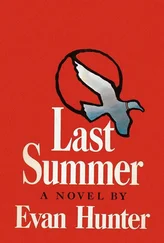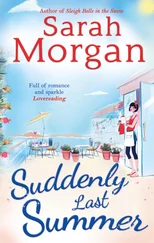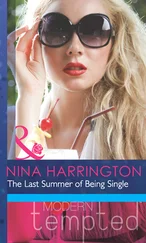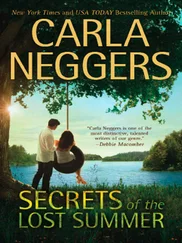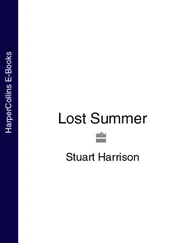I don’t know what might happen this time but anticipate something. H’s excitement is my fear. Maybe they will storm campus and arrest students and take them away. But who will they take? How will they know who to take? What will they do? We wait. I wait. I imagine. It shames me, this cowardice. Nobody comes. Men loiter in the streets around campus. They dress normally, simply, in plain clothes, but I know, we all know, who they are. They stand around. They look. They talk on phones. They never bother us. But they are there. One day I hear that a girl has been arrested for drugs. I don’t know if they caught her outside the university. I don’t know if she was caught by these men. Nobody speaks of it aloud, only whispers, rumor. I look to see where they are before I cross the street. I don’t want to cross paths. A friend of Dido’s is grabbed and taken away crossing their path, walking towards them unaware on his way to a café. I begin to wonder what happened to the man who worked for Uncle Mohsen, and the boy who cleaned cars at the garage next door. He never came back. I look at his parents and siblings each time I walk by and wonder if they know, or still have hope. Were there answers, or had they already said final goodbyes? I look around, my eyes darting, searching.
I focus my camera on the sit-in. The organizer talks into a loudspeaker, thanking everyone for coming. He is pleased with the turnout despite the summer. There are forty-one, forty-two, forty-seven students there. He takes out a folded paper from his back pocket. A black-and-white Palestinian kūfiyyah circles his neck. Everyone claps. He makes a peace sign and reads:
Bismallah al-Rahman al-Rahim, In the name of God, the most gracious, the most merciful,
On July 2, Mohamed and Rana Abdel Jaber had their home destroyed for the second time in twenty-seven days. The invaders sounded an alert, giving them five minutes to evacuate their home that had just been rebuilt. They lived in two modest rooms. Their life savings had gone into building this home, and then rebuilding it again. They took their three children, all under the age of six, and fled. They are now in a white tent that looks just like this. They are among tens of thousands of Palestinians displaced by Israeli forces. These acts of brutality and murder must end.
I zoom with the camera and notice the son of the Palestinian poet Mourid El-Barghouti, a poet himself. I pan. I don’t know him but recognize his face. Their story has been in the papers; Sadat deported Mourid on the eve of the signing of the peace treaty with Israel, and their family had lived separated for seventeen years. I’ve devoured his wife’s novels. The poet wrote that it was the reason he had only one son, otherwise he might have had eight. It was his fate for marrying an Egyptian. They had finally been reunited a few years ago, on pardon from President Mubarak. Mourid had returned to Cairo. I focus on his son’s face, this only child of circumstance, wondering if I can script him into my graduation film. Then I move my lens out to take in the girls nearby. The chanting is insistent. Voices loud. Faces animated. I see determination. Sincerity. A glimmer of sadness. In the end though, all I really see is chatter. I think that’s what I see. I film until I sense I have enough.
I sign the equipment back. Walk down the library steps. Enter the reserves room. It is really a storage closet lined with shelves. A man in a sweat-drenched shirt stands behind a wooden counter. The library is air-conditioned, but this closet is not. 301.H. The man doesn’t acknowledge me but walks to a shelf. Pulls out a folder. Opens it. Brings out the papers. Waves them. The assigned chapter for philosophy class. Fifteen piastres. I nod, give him twenty-five, take the papers. Some students buy actual books, most of us photocopy. He puts the money in a cardboard box below the counter, then turns and rummages in a folder. I exit and turn the corner. Past the mango stand. The shop that sells under-the-counter beer. The man who sells matches and Adams chewing gum and plastic combs off a cardboard crate turned sideways on the pavement. A little girl runs to my side and hop-skips next to me. She holds a packet of tissues to my chest. Fifteen piastres. May God be generous. Ten. Only ten. Ten. I have only enough for my bus fare and a few things from the grocer that Mama needs. Five. Five. Just five. Sorry. Anything. Anything to make my day. She pleads. I’m sorry. She tugs at my shirt. I walk. Please take one for whatever you want. I shake my head. She tries to put her hands around my waist. I keep walking. Please. I shake my head. Please. I walk and say nothing, her hand still on my waist. We get to the corner where the bus stop is. I walk to the glut of people waiting for number twenty-nine. She follows. I stand. She stands next to me. I say nothing. I look ahead. Eventually she goes away.
—
At home Mama has the shutters closed for the heat. The fan is on. The TV is on with volume. The washing machine is rumbling in the background. When I come back in the afternoons, I never know what I might find. There will either be the chorus of domestic sounds, or complete silence. Mama is nowhere. I push through the mashrabiyya doors and see her bedroom closed. I knock gently and pause. I stand for a minute. Strain my ears. Lean my body forward. I wait a minute more, then go into the bathroom. Undress. My clothes fall into a heap on the floor. I roll my hair into a bun. I stand under a lukewarm shower. The water turns from gray to clear. When it turns to a cold trickle, I turn it off. I hear Mama through the door. I wonder what she does. She doesn’t speak much about what’s on her mind. I don’t ask. She doesn’t ask. The unasked questions feel heavy between us.
In my bedroom I stand over my desk looking out of the window as I towel-dry my hair. My drawer is open, crammed with notebooks, and drops of water fall into it and onto an open journal. They are heavy enough to make a sound. The paper quickly shrivels, and the ink spreads. I pass time outlining the blots of ink, then braiding and unbraiding my hair.
After a while the home phone rings. I go outside and pick it up. It’s H. We had made plans to go to the cinema but canceled because her father had been glued to the TV and said he had a bad feeling. Not all the channels could be wrong, and all of them, fifteen, were saying the same thing. The fundamentalists were going to bomb cinemas. It was just a matter of time. I stand on one foot speaking to her, watching through the French doors as Mama prunes her plants by the window, muttering to herself. Sometimes she seems to be reprimanding people from her day, other times reciting prayer. Mama had started praying more after the earthquake. She believed in God, whatever He chose for her would be right, but she still worried about things. Being in the wrong place at the wrong time. Death. Making sure she didn’t tempt fate. We were in the kitchen when it happened. The sky had fallen dark then turned red, and the house began to shake. Mama screamed and leaped up from her chair. I froze. She grabbed me. Suddenly we were standing in the middle of the room, glasses rattling, cutlery flying from the table, food sliding across the tile floor. Mama held me tighter than she had ever held me before, reciting the Shahada . She might have kissed my head. Her version of the story is less dramatic, except that she thought it was the end of the world and was saying prayers for both of us. Later that evening, when neighbors and family had gathered in the garden fearful of another quake, or maybe a building collapse, Mama whispered the fatiha repeatedly under her breath. The entire neighborhood seemed to be there, taking refuge in the open space. They echoed like a chorus. Nothing is built like this anymore. Would their buildings survive? They fretted. Aunty had arrived with a black suitcase that held her jewels. She was the kind of person who was probably more worried about the banks, if they would open again. Her brow remained furrowed the entire evening, and she didn’t say a word. By nightfall the radio announced that the last of the tremors had been felt, and it was probably safe to assume that any building still upright was probably relatively safe to return to. We went upstairs. Eventually the garden emptied out. Mama spent that night praying, on the armchair by her bedroom window, going to bed only when the sun rose.
Читать дальше
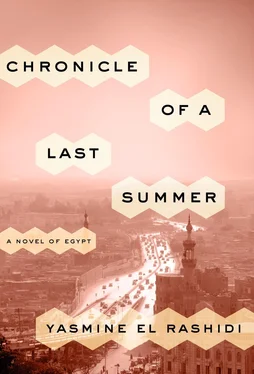
![Маргарет Миллар - Rose's Last Summer [= The Lively Corpse]](/books/384369/margaret-millar-rose-s-last-summer-the-lively-c-thumb.webp)
